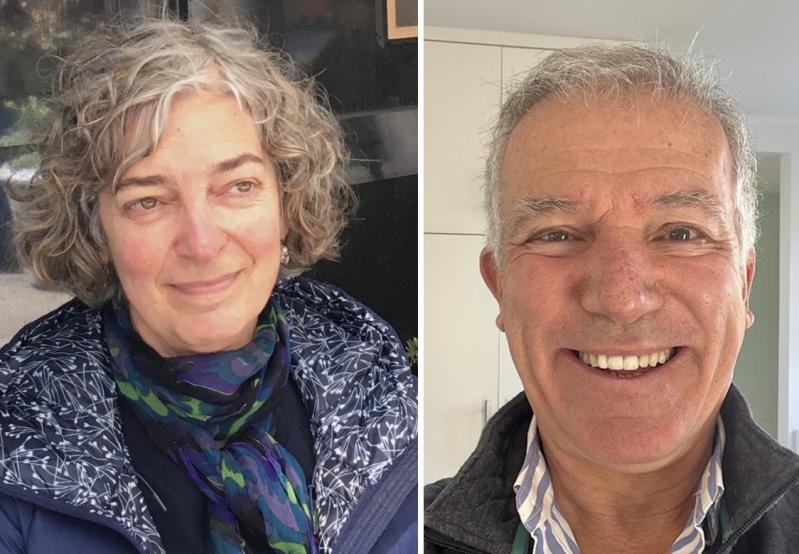Memoirs have the ability to touch us more deeply than a work of fiction. What does that say about us? Many of us are interested in other people's lives — not only what happened to them but how the experience shaped and affected them.
And from the other side, writers are often inspired to share a personal experience in a memoir for a variety of reasons. Some have been touched. Memoirs tell stories of adventure or emotional journey, often shaped by historical events or life-altering experiences — and sometimes check all those boxes at once. With age comes wisdom, which may be a reason why many feel inspired to embark on writing a memoir of their own.
Two local memoir teachers shared their thoughts about what makes for a moving memoir. Andrew Visconti turned to teaching memoir after an international career in journalism. He found solace in memoir after an experience in which a child he knew became orphaned. He leads memoir writing classes in East Hampton as well as for incarcerated individuals. Maryann Calendrille co-owned Canio's Books in Sag Harbor and taught writing, creative writing, and freshman composition prior to leading memoir workshops. She has worked with writers who have published memoir essays, including submissions to The East Hampton Star's Guestwords column.
Memoir Is Storytelling
Memoir may be personal, yet the genre still follows the core principles of writing. A key differentiator between memoir and journaling is the storytelling craft. The structural details of who, what, when, where, why, and how also apply to memoir writing. "It's not a me-me-me sort of exercise," Mr. Visconti said. "It's a very giving process, as the goal is to find a universal theme and have your experiences resonate with other people."
Have a question that you want to investigate. "The most effective memoirs are seeking the answer to a question and seeking a meaning about a situation," Ms. Calendrille offered.
The short-story form works well for memoir, and it can feel more approachable as a starting point. The writer may then opt to expand the short piece to book length, or to compile a series of stand-alone pieces that work together to tell a broader story.
"There's an adage that the character you meet at the beginning of the story is not the same one that you meet at the end of the story. The same principles apply to memoir," Ms. Calendrille said.
Follow the Story
The self-reflection on a past personal experience can create a "story within a story," and the passage of time may offer nuance to the impact of the experience. "The best memoirs offer more dimension, in terms of reflection including not only the events but the emotional, philosophical and ethical considerations that engage the writer at the time," Ms. Calendrille said. "We spark each other's imagination and have points of resonance. All these stories are really about how we endure, how we face challenges, and understand our own identity. They help to explain who we are in the world, and against all kinds of obstacles."
Mr. Visconti added, "People think that they will write about one particular topic but through the course of the program follow a different subject." The process can be intense but also cathartic, he said.
Editing Is Integral to the Process
Some of the best advice Mr. Visconti and Ms. Calendrille offer is to write freely, then edit to shape the piece more carefully. Setting aside a piece of writing and then returning to it after a short period of time can offer fresh perspective. If your writing is intended for an audience, envision how the story written on the page will resonate with a reader. Don't feel emotionally attached to excess material or consider the edited words "cut" as much as enhanced.
Feedback from a workshop or writing group can offer insight into what connects with readers and what may not contribute to the piece. Sharing work with others can afford perspective or raise questions that the writer may not have thought to consider, Ms. Calendrille suggests.
Mr. Visconti notes that it can help to consider the questions of "What else would you have liked to hear from this writer?" and "What could be included or expanded upon?"
Practice, Practice, Practice
Learning the craft of storytelling takes time. "Writing requires practice, trial, and error," Ms. Calendrille said.
"It's amazing how much stronger they become as writers. It's just like going to the gym: At first it's hard, and then it becomes fun, and then students can't live without it. Writing becomes a healthy outlet," Mr. Visconti said.

